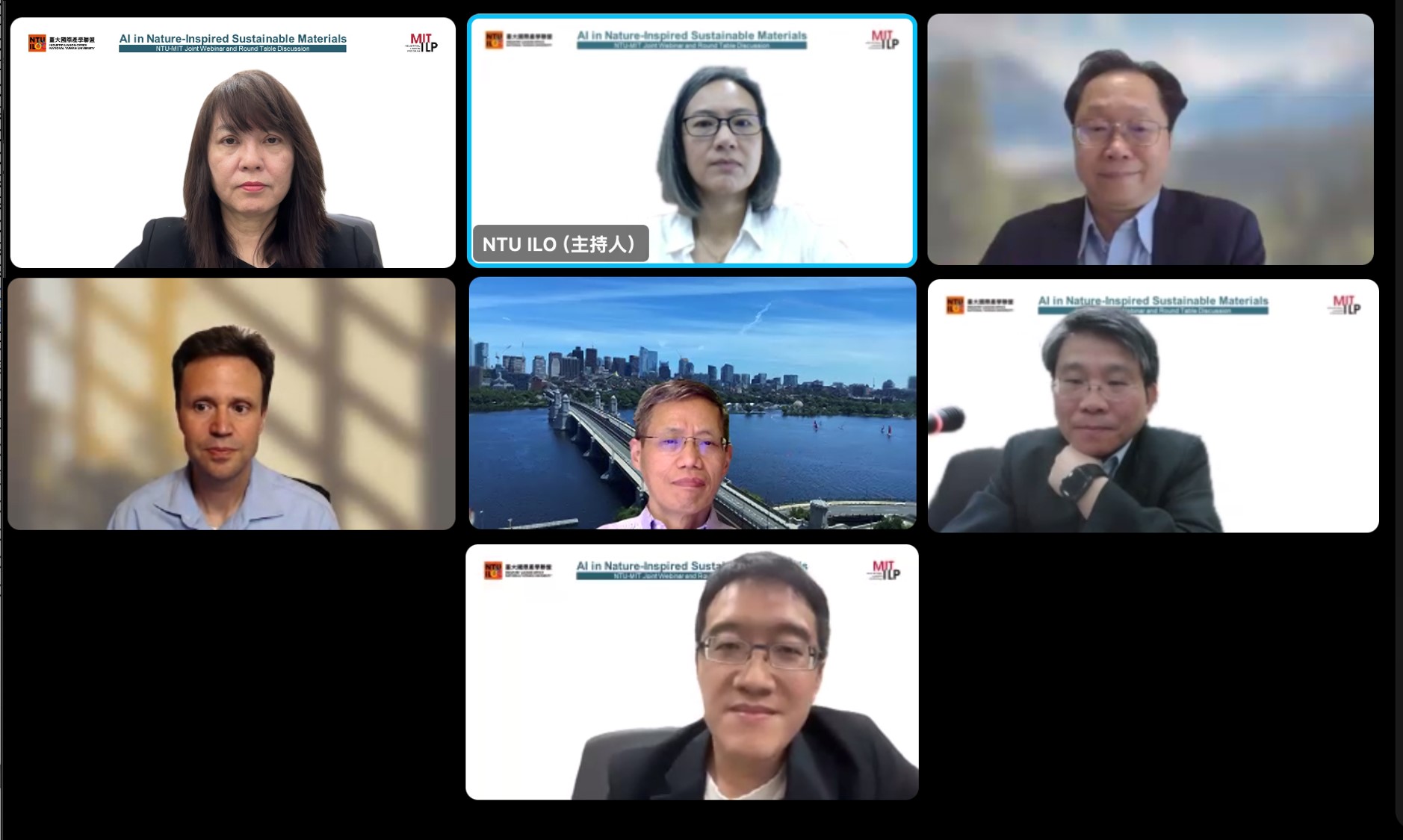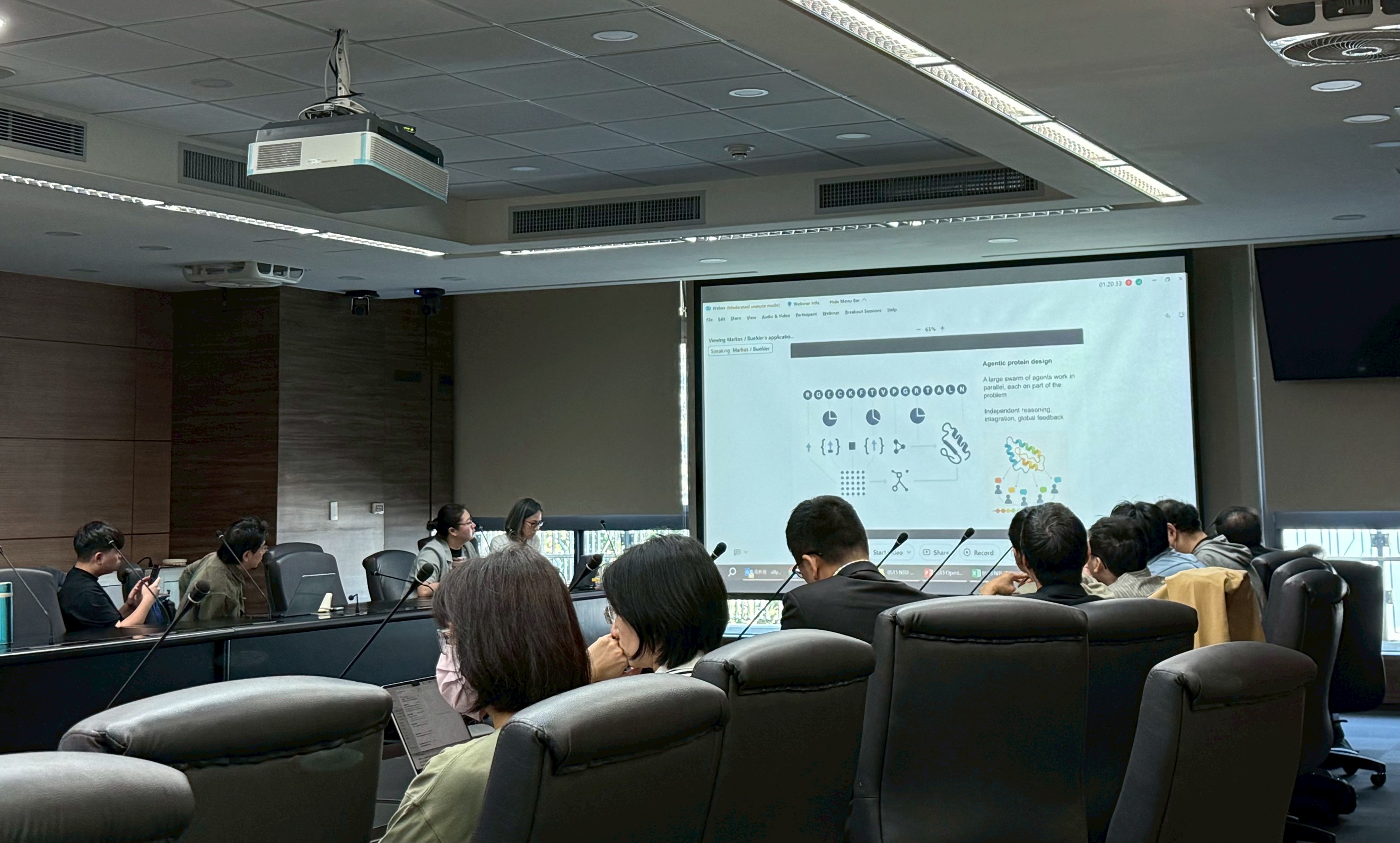On May 13, 2025, National Taiwan University (NTU) and the Massachusetts Institute of Technology (MIT) cohosted a seminar on AI in Nature-Inspired Sustainable Materials. The event combined virtual and on-site formats, bringing together leading scholars and experts from various industry and research fields to explore the intersection of artificial intelligence and bioinspired material design. Professor Chung-Chih Wu, Director of the Industry Liaison Office and Vice President of the Office of Research and Development, NTU, delivered the opening remarks, emphasizing that AI is transforming the landscape of materials research and that interdisciplinary collaboration will be key to driving sustainable innovation.

Photo 1: Group photo of seminar speakers and guests
The first talk was delivered by Professor Markus Buehler, McAfee Professor of Engineering at MIT. His talk, titled “AI That Can Think, Reason and Discover” explored how new AI architectures enable us to build powerful expressive AI models that move beyond memorization and into structural reasoning. Professor Buehler presented case that highlighted breakthroughs in materials science, demonstrating AI-driven advances with real-world applications in medicine, food, and agriculture, demonstrating AI's potential not just as a tool for analysis but as an engine for reasoning, adaptation, and discovery, fundamentally reshaping our understanding of complex systems. Following this, Professor Shu-Wei Chang from NTU’s Department of Civil Engineering and Department of Biomedical Engineering presented a talk on how AI, integrated with molecular mechanics, accelerates the understanding and engineering of bioinspired materials. Professor Chang also shared how his team is able to accelerate the discovery of new structural materials with tailored properties by integrating machine learning, modelling, and evolutionary insight.
The seminar concluded with a roundtable discussion moderated by Distinguished Professor Chuin-Shan Chen from the Department of Civil Engineering and the Department of Materials Science and Engineering at NTU. The panel explored the current challenges and future directions of AI in materials science, emphasizing the need for sustained global collaboration and interdisciplinary innovation to tackle complex engineering and environmental problems. Through continued cooperation with world-renowned institutions like MIT, NTU aims to drive forward transformative research that contributes meaningfully to both scientific advancement and societal well-being.

Photo 2: Representatives from industry, academia and research institutes gathered to participate in the roundtable discussion.